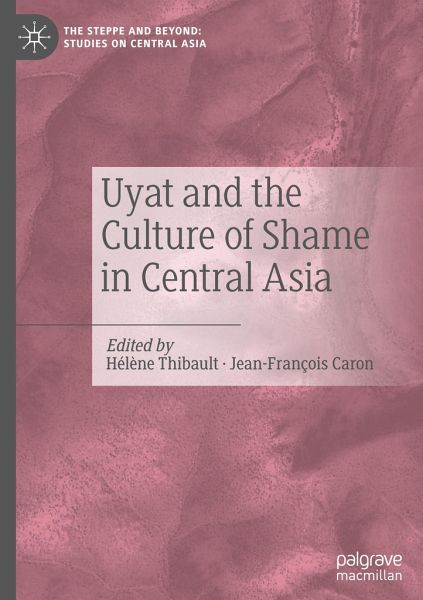
Uyat and the Culture of Shame in Central Asia

PAYBACK Punkte
19 °P sammeln!
This book proposes an interdisciplinary look at the culture of shame in Central Asia and evaluates its role in the regulation of social and political interactions in the region. Contributors demonstrate how 'uyat' relies on patriarchal and hierarchical gender norms that negatively affect women and queer bodies. More specifically, contributors address issues of the taboo of sex education in Kazakhstani schools, favored heteronormativity and its consequences on queer bodies, and the compliance of parents to give their first born to adoption to the husband's parents in Kyrgyzstan. The book also r...
This book proposes an interdisciplinary look at the culture of shame in Central Asia and evaluates its role in the regulation of social and political interactions in the region. Contributors demonstrate how 'uyat' relies on patriarchal and hierarchical gender norms that negatively affect women and queer bodies. More specifically, contributors address issues of the taboo of sex education in Kazakhstani schools, favored heteronormativity and its consequences on queer bodies, and the compliance of parents to give their first born to adoption to the husband's parents in Kyrgyzstan. The book also reflects on how these norms are challenged by young generations. Lastly, the book will also bring a novel reading on local political dynamics by examining the role of shame in Kazakhstani politics as a form of accountability in the absence of genuine political competition. This book will interest scholars of Central Asia, gender theorists, and scholars of post-socialist societies.














